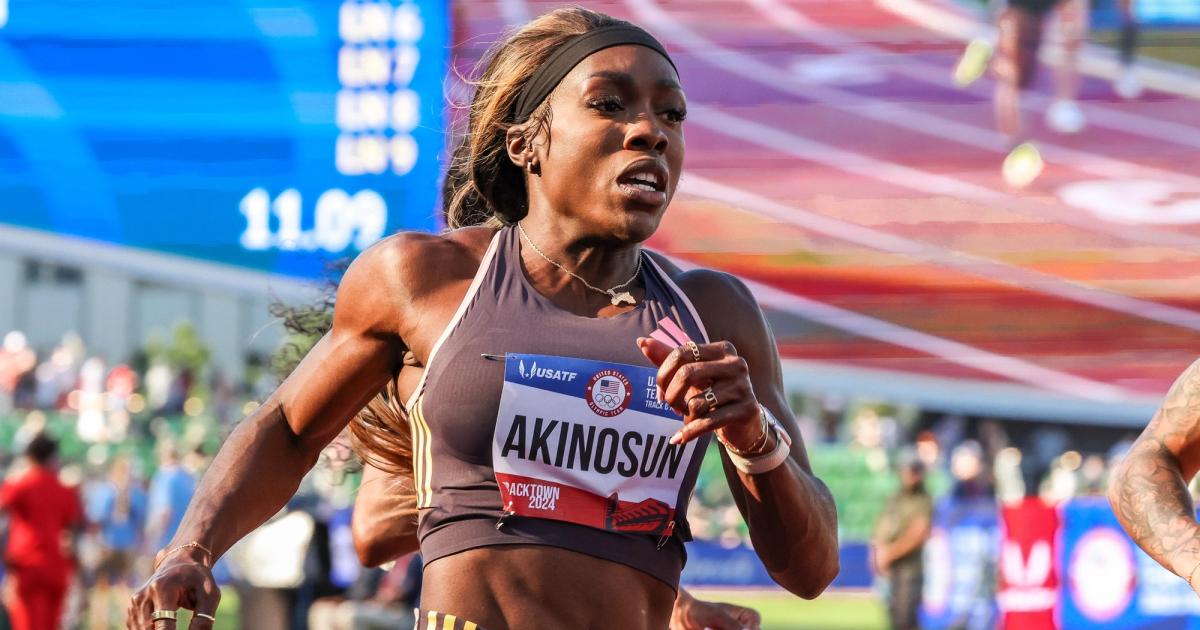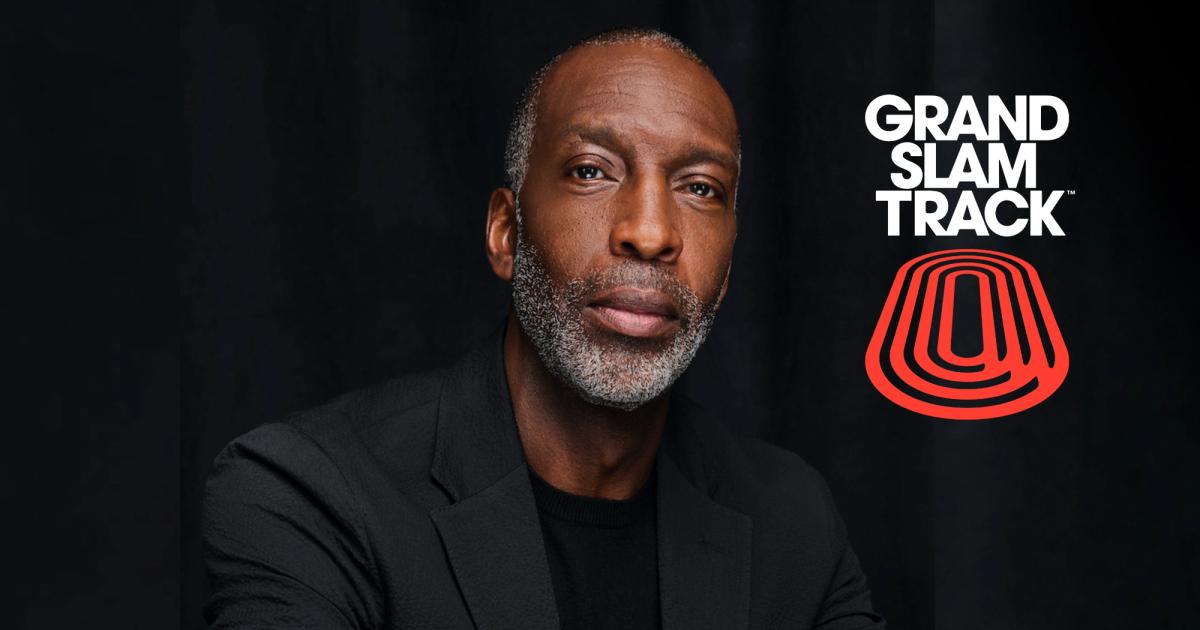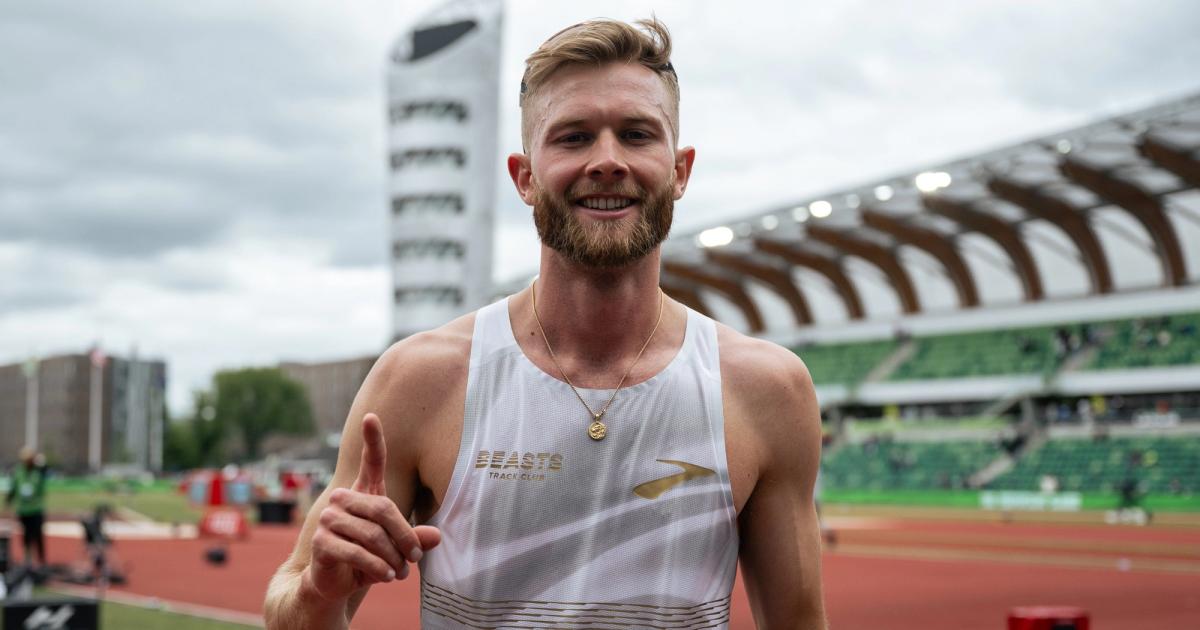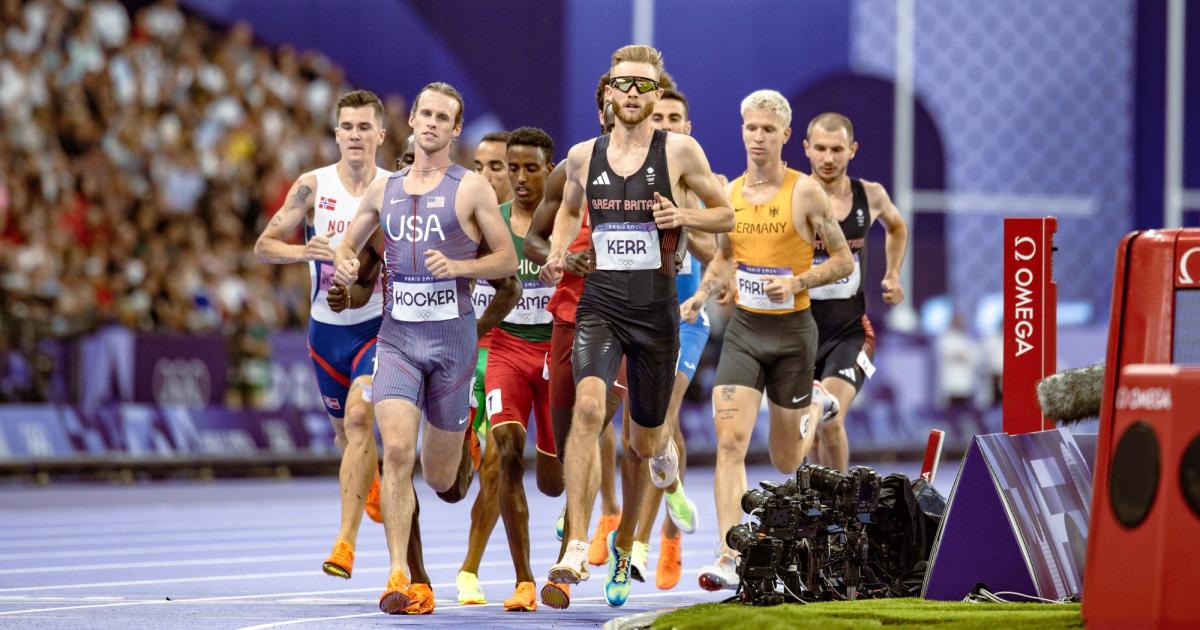By Mac Fleet
September 10, 2024
Mac Fleet caught up with Olympic and World 4x100m champion Morolake Akinosun after she announced her retirement from professional track. Although she’s stepping away from personally competing, Akinosun is staying involved in the track community by joining Michael Johnson, Kyle Merber, and Steve Gera in launching Grand Slam Track. Here’s what Akinosun had to share:
The following interview excerpt with Morolake Akinosun has been edited lightly for clarity.
CITIUS MAG: You're coming up on an eight-year-long professional career, which is absolutely insane in the sport of track and field. First off, congratulations on such an amazing career.
You’re a gold medalist from the Rio Olympics in the 4x100m, gold medalist from the 2017 World Championships in London, bronze medalist from the 2019 World Championships in Doha, and a gold medalist from the 2015 Pan-Am Games in Toronto.
What made you decide that this was the right time to step away from professional track? Looking back on your career, can you share a few highlights as well as the most impactful moment of growth that you’ve had over your career?
Morolake Akinosun: It’s a moment of growth, but it's also a highlight moment for me: making the team in 2019 to go to Doha. I came into that meet ranked 23rd or 26th in the country that year in terms of where I was seeded entering the meet. I was less than a year out from completely rupturing my Achilles and having it surgically repaired. I came into that meet and knew that my family believed in me, I believed in me, and that my coach believed in me.
Outside of a select few people who had seen me on the track, I would say that absolutely no one thought I was going to make that team. Making the team was a huge moment of growth in my belief of what I am capable of doing with the right people and company. It was a highlight because I didn’t think I would be there. No one did.
CITIUS MAG: When you ruptured your achilles, did you think it was over? When did you start dreaming again?
Morolake Akinosun: I was in shock when it initially happened. Not even ‘I think I was in shock’ – I know I was in shock. I ruptured my achilles by running into the wall at the end of a 60 meter race at Texas Tech at an indoor race. I just hit the wall at the perfect angle. My Achilles ruptured completely. I came down the bank and I felt kind of weird like I had jammed my ankle… I was wearing spikes and I walked like 60 or 70 meters to the trainer's table and said, ‘I think I jammed my ankle.’
They took my shoes off and started messing around with my foot and then I heard him say, ‘Go get her crutches.’ I hopped off the table thinking, ‘I'm going to run the final in 45 minutes, I don't need crutches.’ I stood up and realized, ‘I am not okay.’ I didn't even feel pain for a while because my adrenaline and shock was going on for so long. I got surgery within five or six days…
I remember there was a day after I had gotten surgery and had gotten the cast taken off, but I was still in a boot and couldn’t put any weight on it whatsoever. It was the middle of the night and I crawled to the bathroom… I was sitting down and had my leg on the ground. I was like, ‘I can't stand up.’ If I tried to stand up and put any weight on it, I would fall. It was a moment where I couldn’t imagine how I was ever going to sprint full speed again. I couldn't even imagine standing. That was the lowest point that I think I ever got to.
CITIUS MAG: That's nuts. Bone injuries are so easy compared to tendon injuries. I can't imagine that. How soon did the U.S. Championships come after your surgery?
Morolake Akinosun: It was about 14 or 15 months afterwards. I didn't even jog for six months and I didn't even walk for three.
CITIUS MAG: I don’t know how power athletes do that stuff. Distance running is one thing. Sprinting is completely different. So much force on the body.
Morolake Akinosun: When I came back originally, I couldn't train everyday. I had to go every other day because my body and ankle couldn't handle it. I'm thinking about how I'm going to be competing against people who didn't just take the last nine months to learn how to walk again. I would say the entire 2019 season was a growing moment for me, a maturing moment for me in general. Sometimes you're going to have to dig really, really deep to be great. It’s like, ‘How deep into the well are you willing to dig to pull out that greatness?’
CITIUS MAG: I absolutely love that. So track and field athletes kind of struggle with what they're going to do after they retire. It's generally not on the terms that they want. Normally it's because they're getting a bit older and are not performing as well as they used to, or there's an injury.
Have you struggled with that at all? During your pro career, what were you doing outside of running to give yourself an opportunity when you were retired? What did that look like and what does that look like now?
Morolake Akinosun: I worked alongside my great friend Emmanuel Acho on his series, Uncomfortable Conversations With a Black Man. That got me into the world of production where we actually won an Emmy together for it. It introduced me to a life that I didn't know before. I discovered that I was really good at it and had a lot of fun doing it and continued to develop, grow, and work on that while I was still running. I also started my own track meet, Morolake Akinosun's Elite Invitational. This January will be year five.
It’s a middle school and high school invitational meet in Chicago every year that I do for the kids there that are running track. I don't know if anyone ever knows exactly what they want to do when they're done, but I did start dabbling in other things to figure out what life could possibly look like for me post-track and field. I have been very fortunate to completely walk away on my own terms. I always said to anyone who knows me well that 2025 would be the last year that I ran track and field and that would be time for me to move on to the next phase of my life.
Following the 2024 Olympic Trials, I had an overwhelming feeling and sensation immediately after that I was done. It felt so clear to me. I am a woman of strong faith and the night that I had that overwhelming feeling that I was done. I said a prayer: ‘God, if I'm supposed to be done, open the next door wide open…’ So I said that prayer and went to sleep.
I woke up the next morning already done with the Trials and just enjoying the meet, having a good time. I met Michael Johnson and Steve Gera. Michael Johnson's name speaks for himself. Steve Gera is the president of Grand Slam Track and I found myself in conversation with the two of them. Fast forward a month and I was headed to Paris with Grand Slam Track to work with them as a consultant. The day I got back from Paris, I went full-time with Grand Slam Track.
CITIUS MAG: That's incredible. And now you have to deal with our Kyle Merber.
Morolake Akinosun: I've had so much fun working with Kyle. I'm sorry for you guys for losing him. Do you guys miss him?
CITIUS MAG: We like to say that we fired him instead of him actually taking that job. No, if I'm being serious, we love Kyle. Kyle is the biggest track nerd on the face of the earth.
What has you most excited about this Grand Slam Track endeavor?
Morolake Akinosun: Grand Slam Track will revolutionize track and field. Not the field part – it will revolutionize track. It will create what track has been needing in the U.S. and the world for so long. It will give track athletes a meet to call their own. It will give them a sense of belonging and ownership. I think it will be the biggest game changer we've seen in track for a very, very long time. It will be the future of track that people don't necessarily see yet, but they will.
I'm so excited to be a part of the moving ship of shifting momentum to see the sport that I've loved my entire life grow, and be a part of that growth, even though I won’t physically be running in it. Regardless, everyone has to move on from competition at some point in life, but to still be able to be on board with the change right away is incredible.
CITIUS MAG: I have trust in Michael because he is too public and has too much pride to put his name on something that he doesn't actually believe is worth his time. Michael Johnson is a seriously impressive human being – he has so much experience on the track and off the track. He could have easily chosen to not be involved in anything, but him actually doing this means a lot and I believe in its growth because of that.
Morolake Akinosun: He loves this project. He's very, very involved in making sure that it's going to be great. [People say] never meet your heroes – I am very fortunate to have met a lot of my heroes growing up in the sport of track and getting the opportunity to meet and know them, Michael Johnson being one of them. He's one of those people where you meet him and then like him even more afterwards. Sometimes you meet a person that you look up to and they kind of let you down expectation-wise. He didn't do that.
CITIUS MAG: It's great when you're like, ‘Yeah, this makes sense. This is part of the reason why you're as big of a person as you are.
What are you most excited about in this new format? It's going to take a little bit of time to get into people's heads what these competition groups are.
Morolake Akinosun: I'm excited about seeing more competitive competition. Everyone loves a good matchup and everyone loves people playing again… I’m excited to see the best of the best compete and see one person get it one time, one person get it the next time, and see who's going to be the better of the competition each time. I'm excited to watch the best of the best compete four times against each other and figure out, ‘Is there going to be an upset? Is someone that we didn't expect to win going to win?’
CITIUS MAG: Alright, what should we be looking forward to over the next couple of months? There's a lot in the pipeline.
Morolake Akinosun: Oh, yeah, there's a lot with that pipeline. You should be looking forward to 44 more racers being announced in the next two months or so and looking forward to location announcements of what cities we're going to be in throughout 2025. Those are the big things: who's going to be racing and where they are going to be racing. We know that they're going to be racing in L.A., for sure. That was announced at the beginning of June when the launch happened. But we'll have some more race announcements and more location announcements coming soon.
CITIUS MAG: Amazing. Last little bit: what was your favorite meet to compete at and what about that meet did you love? Then as a spectator, what did you love and hate about Paris?
Morolake Akinosun: My favorite meet to compete at? Two answers: number one, Texas Relays. There's nothing like competing in front of your home crowd and fanbase. I loved it and will always love it. That's my home track. Meet number two: the London Diamond League, or any meet in that stadium. The track is fast and the people there love track and field. It's just exciting.
[At the Paris Olympics], the men’s 100 meter intro was phenomenal. I was like, ‘It’s lit, it's a party. This is so much fun.’ I heard afterwards that the reason they didn't do it again was because the lights affected the timing system and that's why there was a really long pause before the men's 100 actually got started. So when I learned that information, I was like, ‘That makes sense.’ But for the one race we did get it for, it was incredible. I loved it.
What did I hate about Paris? I have a strong answer for this. The stupid Coca Cola cups where they wouldn't let you put your drink in anything but that. I had my water in a bottle that I came in with that had a cap on it. Why must I put it in this stupid red cup with no cap?
CITIUS MAG: At some point they were making people take a sip of whatever they had as they walked in but letting them keep the bottles in a couple of the entrances. But yeah, I’m with you. The intro for the 100 was great. That's the first time we've gotten something huge like that.
Thanks for joining us! We’re looking forward to seeing what’s ahead as you take on this next chapter of your life with Grand Slam Track.
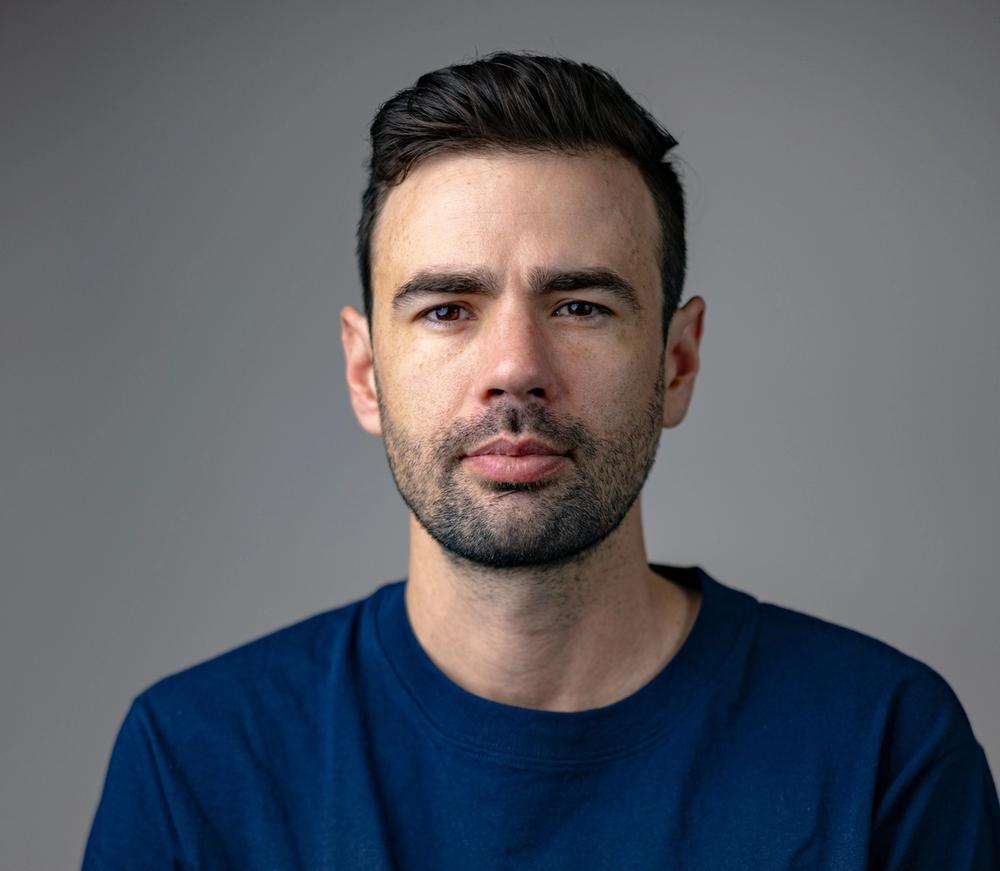
Mac Fleet
Mac, who possesses one of the best runner names of his generation, lived up to the billing as a two-time NCAA 1500m champion and eight-time All-American as an Oregon Duck.
